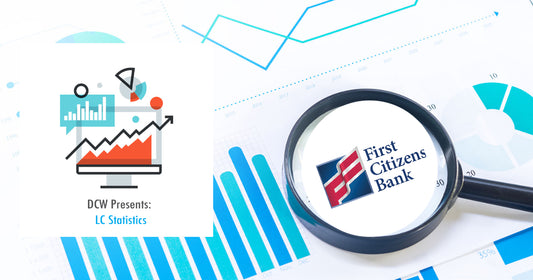Categories
- Anti Money Laundering
- authenticated
- automatic extension
- bill of lading
- compliance
- Counter Terrorist Financing
- extension
- financial crime
- Financial Guarantee
- Guarantee
- Independent Guarantee
- Iran
- ISP98
- LC
- LC Law
- LC Statistics
- Red Flags
- Sanctions
- Standby LC
- SWIFT
- Trade Based Financial Crime Compliance
- tranport documents
- UCP500
- UCP600
- wrongful dishonor

Part 1
Early Closure on a Banking Day – What to do if you are the beneficiary of a standby and the bank is closed at a time when it should be open? This situation occurred on a regular banking and business day in Hong Kong in July 2015 when the Hong Kong Observatory issued a Typhoon 8 Signal. On this day, some banks in Hong Kong closed their doors at 14:30 after receiving a pre-alert of the Typhoon 8 Signal. Other banks did not close until the Typhoon 8 Signal was actually hoisted two hours later at 16:30. The forecasted typhoon never materialized. Does it qualify as a force majeure event? A trickier question: What liability (if any) does a bank assume if it elects to release its staff and close its doors hours in advance of a government department’s action permitting it to do so?
At the Americas Forum, delegates were informed that the US Comptroller of the Currency has the authority to declare a legal holiday for banks in the event of a natural disaster or other emergency conditions. Could a bank request the Comptroller (or appropriate regulator in its jurisdiction) that a declaration be issued? If so, how long would it take to get such a declaration and could it be issued retroactively?
Other scenarios were discussed. What if the designated place for presentation is Tampa and presentation is attempted on the last business day for presentation while Tampa is experiencing a hurricane? How does the presenter prove that it attempted presentation? One delegate said that it depends on the type of force majeure. Maybe the presenter could send a fax or e-mail that you tried (to make presentation)? Jim Barnes said: “You have to appreciate that force majeure is a narrow concept. It does not handle all the situations that can occur.” Rather than attempt to define or list what qualifies as a force majeure event, drafters of ISP98 chose not to use the concept. Instead, the question under ISP98 is whether the place for presentation is closed on a day that it is regularly scheduled to be open for business (see ISP98 Rule 3.14).
For more on this subject, see the October 2015 issue of DCW.
Tomorrow’s blog post: Opening Hours Listed in LC
[su_spoiler title="Notes From the Standby & Guarantee Forum: Part 2" icon="caret"]
Part 2
Opening Hours Listed in LC – If banks choose to state opening hours in their LCs, they need to be very specific as to where and during what hours presentation needs to occur. Another panelist commented that banks are much safer with ISP98 if they do not mention opening hours in their standbys. UCP600 rules do not define the term “banking hours”. The panel referenced the unfortunate ICC Opinion R325 (UCP500) stating that if a bank is regularly open on a half day, that day counts as a “banking day”.
Tomorrow’s blog post: No Expiry or Perpetual LC.
[/su_spoiler]
[su_spoiler title="Notes From the Standby & Guarantee Forum: Part 3" icon="caret"]
Part 3
No Expiry Date or Perpetual LC – Governments in the Middle East insist on guarantees and LCs without expiry dates. How to deal with independent undertakings that do not contain expiry dates? IIBLP has been working with the Singapore banking community to draft a model form comparable to ISP98 Model Forms 2 and 11.1 which contain endnotes regarding auto-extension and a final expiration date. When the UN Convention on Independent Guarantees and Standby LCs was drafted in the mid-1990s, UNCITRAL asked commission members if their countries had perpetual LC (none did) and addressed in UN LC Convention Article 12 (Expiry) when the validity period of an undertaking expires. In the US case Golden West v. SunTrust, there exists bad law regarding treatment of perpetual LCs. When pressured to issue open-ended guarantees, one non-US delegate said that her bank obtains an indemnity.
Tomorrow’s blog post: Standby Forms
[/su_spoiler]
[su_spoiler title="Notes From the Standby & Guarantee Forum: Part 4" icon="caret"]
Part 4
Standby Forms – There exists forms stating that the drafter of a standby should recite that the standby is subject to ISP98 or UCP600 and allow for subsequent revisions of the rules. Standbys that “must at all times” be subject to the latest set of rules are problematic. Other forms say that the standby must be amended. Who is in breach if the standby is not amended? Panelists also updated delegates on the ISP98 Model Forms project. Three forms comprise the ISP98 Form 11 series: 11.1 (U.S. Model Government Standby Form) is publicly available on the IIBLP website; 11.2 (Government Mandated Confirmation) is being drafted; and 11.3 (Model Contract for a Standby LC) is in the preliminary stages of being drafted. Panelists also informed delegates that US municipal agencies commonly slow to adapt to new or revised rules, but a recent educational outreach convinced one municipal agency to consider ISP98. Other panelists contend that some areas of banks are looking at underlying transactions and capital adequacy measures with little or no regard to the text of the standby, so this remains a problem.
Standby forms will be on the docket for discussion in 2016 for the Guarantee & Standby Forum held around the world. Click here to learn more.
Tomorrow’s blog post: Auto-Extension Confirmation
[/su_spoiler]
[su_spoiler title="Notes From the Standby & Guarantee Forum: Part 5" icon="caret"]
Part 5
Auto-Extension Confirmation – There are many ways a bank can qualify its confirmation: amount; expiration; sanctions (whether or not to act). Confirmation is tricky. Some LC specialists who are non-bankers are shocked that banks confirm with so little coordination with issuers and beneficiaries. Banks should devote greater attention to their confirmations. This is particularly true under UCP as this set of rules is not as clear as ISP. UCP definitions are especially are deficient in this regard.
Monday’s blog post: ISP98 Update
[/su_spoiler]
[su_spoiler title="Notes From the Standby & Guarantee Forum: Part 6" icon="caret"]
Part 6
ISP98 Update – The ISP98 rules will not be revised, but efforts are underway to revise the ISP98 Official Commentary. The Council on the International Standby Practices will also be issuing official interpretations of questions regarding ISP practice. One set of questions currently under consideration: Does the issuer have a duty to: a) notify the presenter that it cannot identify the standby or b) identify the standby under which a presentation is made where it does not identify the standby? The sense is that the issuer can inquire to presenter or beneficiary in order to identify the standby under which documents are delivered, but the issuer has no obligation to do so. One banker based outside the US said that ISP is gaining in popularity and noted that removal of UCP’s reference to standbys would further enhance ISP. In Europe, other specialists have noticed a quiet adoption of ISP as clients are recognizing the dangers of UCP for standbys.
Next blog post: Cancellation
[/su_spoiler]
[su_spoiler title="Notes From the Standby & Guarantee Forum: Part 7" icon="caret"]
Part 7
Cancellation – There are various scenarios in which a standby or independent guarantee may be cancelled. The panel first focused on an applicant’s ability to cancel a standby. This can be done by presenting a document that reduces the standby’s amount to zero. The panel also noted that URDG758 Article 13 (Variation of Amount of Guarantee) does not say who would present a document that reduces the amount. In some instances, well-known companies as applicant or beneficiary want control of the ability to cancel. What if one party does not agree? Some applicants have been successful in getting the beneficiary to sign off, however the instrument cannot be terminated without the express consent of the beneficiary. Cancellation without beneficiary consent clouds the independent nature of the undertaking. In fact, it should only be possible if the instrument is a revocable credit. A panelist referenced the 2011 US case CVD Equipment Corp. v. Taiwan Glass Industrial Corp. (abstract available in the 1996-2015 Cumulative Annual Review of LC Law & Practice) in which a performance standby containing a provision for cancellation on presentation of a specific document (in this case, a bill of lading copy) was found to have fulfilled the requirement of beneficiary consent.
Next blog post: Supersedeas LCs
[/su_spoiler]
[su_spoiler title="Notes From the Standby & Guarantee Forum: Part 8" icon="caret"]
Part 8
Supersedeas LCs – By means of a role-playing skit, panel members took up this topic to explain the advantages of using a supersedeas LC in lieu of a bond. The skit demonstrated the negotiations that could take place and what issues may arise when a defendant that has had a large final judgment entered against it seeks to appeal that judgment and stay execution by posting an LC to cover the amount of the judgment should it lose the appeal. The audience was provided the proposed form of supersedeas LC so delegates could follow discussions among a cast of characters that included the CEO of Applicant Company/Judgment Debtor, Attorney for Applicant Company, Issuing Bank’s LC Dept. Manager, LC Attorney for Issuing Bank, Attorney for Beneficiary/Judgment Creditor, and the District Court Judge. Based on their various roles, the characters challenged or defended certain wording in the proposed form. The panel also highlighted the cost savings of producing a supersedeas LC instead of incurring bond fees.
Next blog post: Financial Crime in Trade: Obligations and Expectations
[/su_spoiler]
[su_spoiler title="Notes From the Standby & Guarantee Forum: Part 9" icon="caret"]
Part 9
Financial Crime in Trade: Obligations and Expectations – The US Financial Crime Enforcement Network (FinCEN) has issued two geographic targeting orders over concern that certain businesses in the Los Angeles Fashion District and Miami areas are supporting trade-based money laundering. While it is unlikely that neither LCs, nor trade financing instruments are being used for such dealings, banks’ attention needs to be on wire transfers and asset-based lending.
Banks were also reminded that they are liable if they process a transaction that is OFAC-filtered, even while there is no prescribed approach. The US Office of Foreign Assets Control (OFAC) has been very forgiving of banks which have sound policies and follow them. Regarding what is expected of banks concerning the underlying transaction in a bank-to-bank reimbursement obligation, a reimbursing bank is not responsible for the underlying transaction but it is that the issuing bank is looking at the underlying transaction. Banks are also asking a lot of questions about what is expected of them regarding factoring and receivables financing. Banks buying into these arrangements need to think about what information they can ask for in order to satisfy regulators. Banks are expected to track clients’ business patterns and signs of over- or under-invoicing. The net for detecting financial crime indicators is increasingly being cast far and wide.
Next blog post: What You Need to Know from Recent Standby & Guarantee Cases
[/su_spoiler]
[su_spoiler title="Notes From the Standby & Guarantee Forum: Part 10" icon="caret"]
Part 10
Open Forum – The New York Standby & Guarantee Forum concluded with an opportunity for delegates to ask any remaining questions. Discussion focused on whether any participants were familiar with use of “on-demand bonds”. None were, although UK regulators have been concerned with any instruments made to appear like suretyships. In the US, bonds issued by insurance companies are suretyships. In Asia, performance bonds are very commonly treated as independent guarantees.
What’s Next? In 2016, the Guarantee & Standby Forum conference series will resume with one-day events held around the world in Stockholm (24 May), Utrecht (26 May), Oslo (31 May), Hong Kong (8 Jul), Singapore (13 Jul), Shanghai (18 Jul), and New York (Oct). For the full 2016 calendar, click here. Delegates in many regions will benefit from an early registration discount. For more information or programme details, email info@iiblp.org.
[/su_spoiler]




